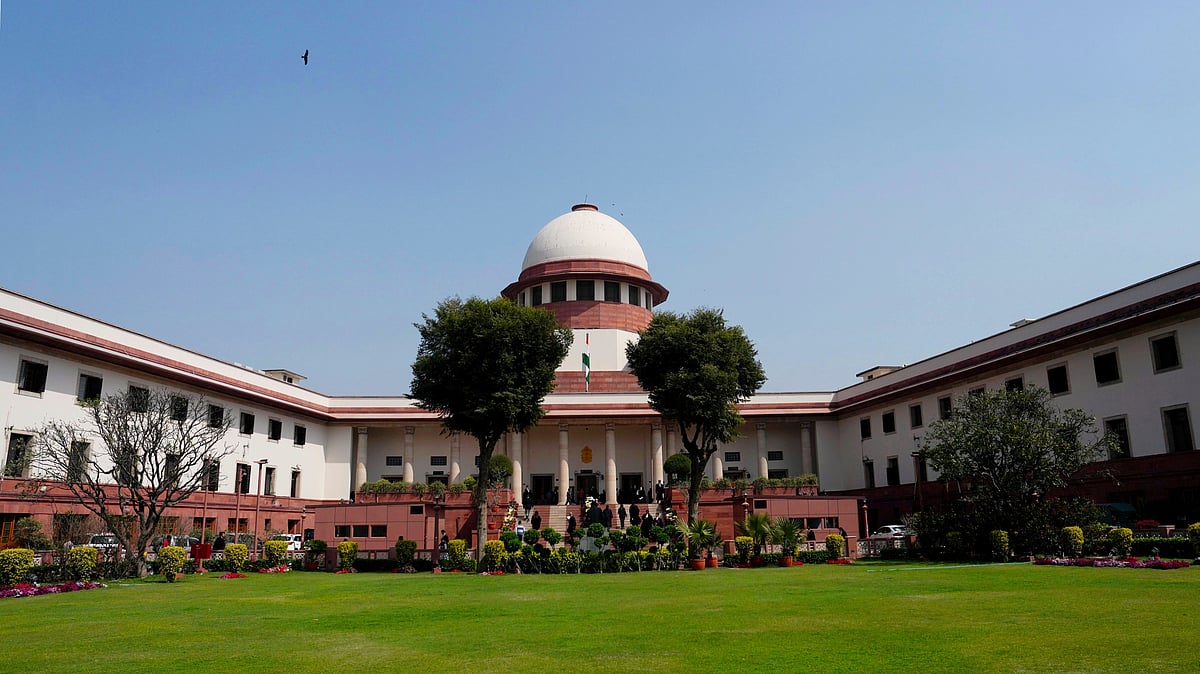Nation
SC seeks EC's response on pleas of DMK, TMC against SIR in Tamil Nadu, Bengal
Bench of Justices Surya Kant and Joymalya Bagchi grants EC two weeks to respond to fresh batch of petitions

The Supreme Court on Tuesday directed the Election Commission of India (ECI) to furnish separate responses to petitions filed by multiple Opposition parties — including the DMK, CPI(M), the West Bengal Congress, and Trinamool Congress (TMC) leaders — challenging the Special Intensive Revision (SIR) of electoral rolls in Tamil Nadu and West Bengal.
A Bench of Justices Surya Kant and Joymalya Bagchi granted the ECI two weeks to respond to the fresh batch of petitions. The court also instructed the Madras and Calcutta High Courts to temporarily suspend proceedings on related challenges to the SIR exercises in both states.
In addition, the Bench permitted the listing of an intervention plea by the AIADMK, which has come out in support of the revision drive in Tamil Nadu.
Opposition flags “hurried” process, weather constraints
During the brief hearing, senior advocate Kapil Sibal, representing Tamil Nadu’s ruling DMK, argued that the electoral revision was being carried out “in undue haste” and without adherence to due procedure. He pointed out that voters were being asked to produce inconsistent sets of documents across different districts.
Sibal further noted that the timing of the exercise was impractical, as the northeast monsoon typically brings heavy rainfall to Tamil Nadu between November and December. “According to the meteorological department, heavier-than-usual rainfall is predicted this year. People will be preoccupied with flood preparedness, while revenue officials — who also serve as Booth Level Officers (BLOs) and Electoral Registration Officers (EROs) — will be engaged in relief work. This is not a conducive time for conducting such a revision,” Sibal submitted.
Justice Kant, however, observed that in a country as large as India, “some states will always face natural calamities”, suggesting that adverse weather could not indefinitely stall administrative exercises.
Published: undefined
Sibal also flagged connectivity issues in remote areas of Tamil Nadu, saying that uploading voter data would be challenging. “The situation is similar, if not worse, in rural Bengal,” he added.
Bench urges calm, warns against political “apprehensions”
The Bench remarked that the case appeared to project the SIR as if it were “the first-ever preparation of electoral rolls”. It reminded counsel that the ECI is a constitutional authority mandated to carry out such revisions and had done so many times before.
“The problem,” Justice Kant observed, “is that everyone wants status quo.” Sibal countered that the petitioners were not opposing the revision per se, but the “hurried and opaque manner” in which it was being undertaken.
The Bench reassured the parties that the ECI would be asked to clarify all aspects of the exercise. “If we are satisfied that something is amiss, we will annul the entire exercise,” the judges said.
Responding to arguments that the modalities in Tamil Nadu differed from those adopted in Bihar during a similar SIR, the court said this could indicate that the ECI had “rectified its earlier mistakes.” Sibal disagreed, asserting that “the two states cannot be compared — their conditions are completely different.”
Trinamool and Left Leaders Join Challenge
Senior advocate Rakesh Dwivedi, appearing for the Election Commission, sought time to file replies to the fresh petitions.
Senior advocate Kalyan Banerjee, representing TMC MP Dola Sen, confirmed that his client had also filed a petition challenging the SIR in West Bengal.
Advocate Prashant Bhushan, appearing for the Association for Democratic Reforms (ADR), raised concerns over “procedural irregularities”, citing instances such as the ECI issuing a machine-readable voter list during the Bihar revision.
Published: undefined
The court subsequently issued formal notices to the ECI on all new petitions, directing it to “adopt the best practices” from previous exercises, such as the one in Bihar, while remaining mindful of local conditions.
Further hearing later this month
The Supreme Court scheduled further hearings for 26 and 27 November, when it will consider interim pleas from political parties seeking a temporary halt to the SIR process.
Among the petitioners are Dola Sen, West Bengal Congress leader Shubhankar Sarkar, DMK’s R.S. Bharathi, and CPI(M)’s P. Shanmugam. Their pleas contend that the ECI’s directive violates Articles 14, 19 and 21 of the Constitution — which guarantee equality, freedom of speech, and the right to life — as well as provisions of the Representation of the People Act and the Registration of Electors Rules, 1960.
The CPI(M) has described the ECI’s order as “arbitrary, illegal, and unconstitutional.”
The AIADMK, meanwhile, has supported the SIR, calling it a “legitimate and necessary measure” to preserve the sanctity of the electoral process and prevent voter fraud.
Second phase of revision underway
On 27 October, the Election Commission announced the second phase of the SIR across 12 states and Union territories, to be conducted between November 2025 and February 2026. These include the Andaman and Nicobar Islands, Lakshadweep, Chhattisgarh, Goa, Gujarat, Kerala, Madhya Pradesh, Puducherry, Rajasthan, Tamil Nadu, Uttar Pradesh, and West Bengal.
Tamil Nadu, Puducherry, Kerala, and West Bengal are due to hold assembly elections in 2026. The ECI has said that Assam, also due for polls that year, will have its own schedule for revision.
The current phase of the SIR began on 4 November and will continue until 4 December. Draft electoral rolls are expected to be published on 9 December, with final rolls to be released on 7 February 2026.
Published: undefined
Follow us on: Facebook, Twitter, Google News, Instagram
Join our official telegram channel (@nationalherald) and stay updated with the latest headlines
Published: undefined